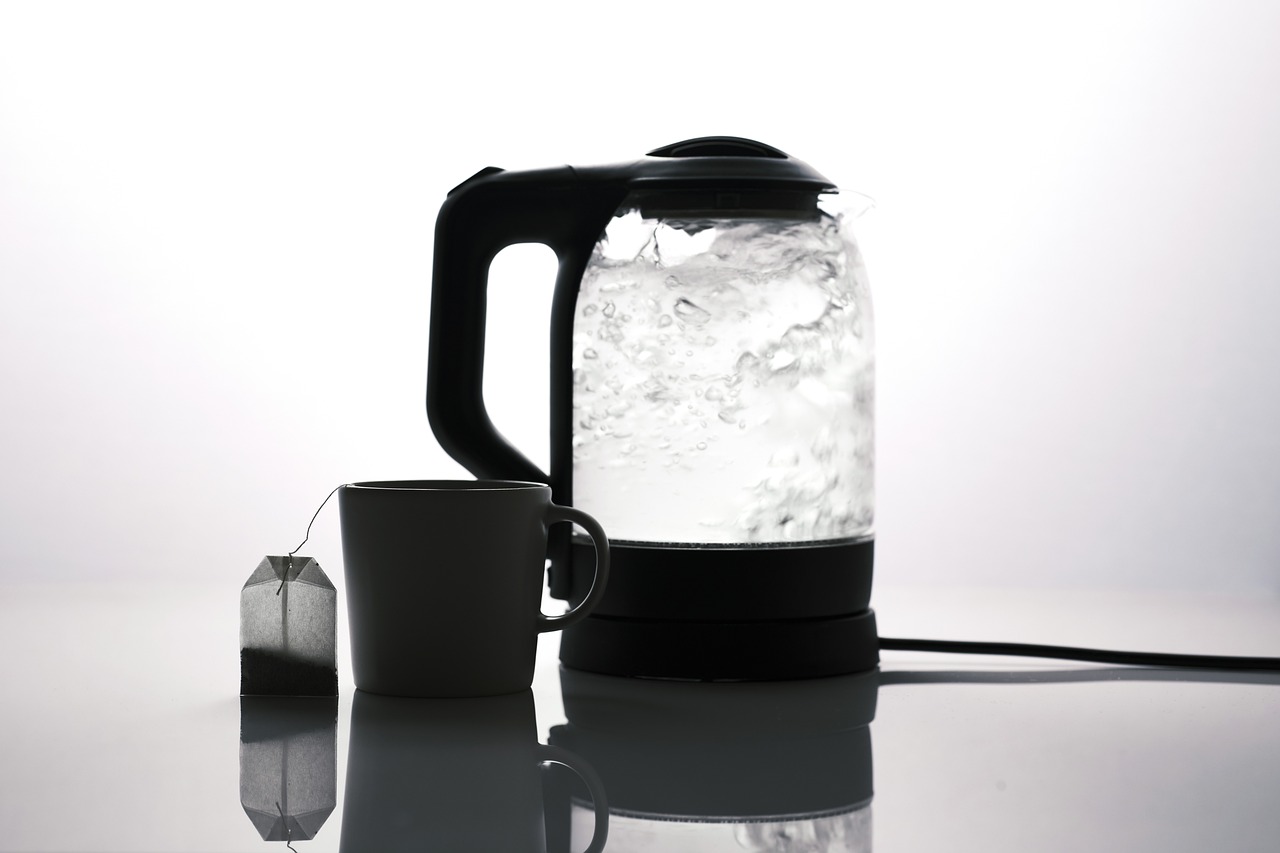Water fasting is a method that involves consuming only water for a predetermined period, effectively excluding all food intake. This practice has been utilized for centuries, often for religious or spiritual reasons, but in recent times, it has gained popularity as a potential health and wellness strategy. In this article, we will delve into the intricacies of water fasting, focusing on how to utilize a water fast calculator to monitor your fasting journey and achieve your health goals.
What is Water Fasting?
Water fasting is defined as a complete abstinence from food while only allowing water consumption. Historically, various cultures have employed fasting for detoxification and spiritual enlightenment. Recent studies suggest that water fasting may have numerous health benefits, including weight loss, improved metabolic function, and cellular repair.
Benefits of Water Fasting
- Weight Loss: One of the most significant advantages of water fasting is its potential for weight loss. By eliminating food intake, the body begins to utilize stored fat for energy, leading to weight reduction.
- Detoxification: Fasting may promote the elimination of toxins from the body, allowing for cellular repair and rejuvenation.
- Metabolic Health: Water fasting can improve insulin sensitivity and lower blood sugar levels, contributing to better metabolic health.
How to Use a Water Fast Calculator
A water fast calculator is a valuable tool that helps individuals track their fasting periods and monitor their results. Here’s how to effectively use it:
- Setting Up: Begin by entering your personal information, such as age, weight, and height, into the calculator. This data will help tailor the fasting plan to your specific needs.
- Selecting Fasting Duration: Choose the length of your fast. Common durations range from 24 hours to several days, depending on your experience and health status.
- Tracking Progress: Regularly input your weight and any other relevant metrics to see how your body responds to fasting.
Interpreting Your Results
Understanding the metrics provided by the water fast calculator is essential for assessing your progress. Pay attention to changes in weight, energy levels, and overall well-being. This data can help you make informed decisions about continuing or adjusting your fasting regimen.
Common Questions About Water Fasting
Many individuals have questions regarding the safety and efficacy of water fasting. Common inquiries include:
- Is water fasting safe for everyone?
- What should I expect during a water fast?
- How can I prepare for a water fast?
Success Stories: Real-Life Experiences
Reading about the experiences of others can provide motivation and insights. Many individuals have shared their success stories, highlighting significant weight loss, improved health markers, and enhanced mental clarity after completing a water fast.
Is Water Fasting Right for You?
Before embarking on a water fast, it’s crucial to evaluate your health status and consult with a healthcare professional. While many people find water fasting beneficial, it may not be suitable for everyone, particularly those with certain medical conditions or nutritional needs.
In conclusion, water fasting can be a powerful tool for those looking to enhance their health. By utilizing a water fast calculator, individuals can effectively track their progress and results, making informed decisions along their fasting journey.

What is Water Fasting?
Water fasting is a dietary practice that involves refraining from all food intake while exclusively consuming water for a designated period. This method of fasting has gained popularity in recent years, often touted for its potential health benefits and spiritual significance. Understanding the definition and historical context of water fasting can provide valuable insights into its effectiveness and purpose.
Definition of Water Fasting: At its core, water fasting is a form of fasting that restricts all caloric intake, allowing only the consumption of water. Participants typically engage in this practice for various durations, ranging from a single day to several days, depending on individual goals and health considerations. The primary intention behind water fasting is to allow the body to enter a state of ketosis, where it begins to burn fat for energy in the absence of glucose.
Historical Context: The concept of fasting is not new; it has roots in many cultures and religions throughout history. Ancient civilizations, including the Greeks and Egyptians, practiced fasting for both health and spiritual reasons. In many religious traditions, fasting is seen as a way to purify the body and mind, enhance spiritual awareness, and foster a deeper connection with the divine. For instance, in Christianity, Lent is a period of fasting that prepares believers for Easter, while in Islam, Ramadan involves fasting from dawn until sunset.
Potential Benefits of Water Fasting: Advocates of water fasting often highlight several potential health benefits. These include:
- Weight Loss: Water fasting can lead to significant weight loss as the body begins to utilize fat stores for energy.
- Detoxification: Many believe that fasting helps the body eliminate toxins, promoting overall health and well-being.
- Improved Metabolic Health: Research suggests that fasting may enhance insulin sensitivity and lower blood sugar levels, contributing to better metabolic health.
- Cellular Repair: Fasting triggers autophagy, a process where the body cleans out damaged cells and regenerates new ones.
Despite its potential benefits, water fasting is not suitable for everyone. Individuals with certain medical conditions or those who are pregnant should consult with a healthcare professional before undertaking such a fasting regimen. It’s essential to approach water fasting with caution and a well-informed mindset.
In summary, water fasting is a practice steeped in history and marked by various potential health benefits. By understanding its definition, historical significance, and possible advantages, individuals can make informed decisions about whether this fasting method aligns with their health goals.

Benefits of Water Fasting
Water fasting, a practice that involves abstaining from all food and consuming only water for a designated period, has gained popularity for its potential health benefits. Understanding the can serve as a powerful motivator for individuals considering this approach to health and wellness. This section delves into the numerous health advantages associated with water fasting, including weight loss, detoxification, and improved metabolic health.
One of the most significant benefits of water fasting is its ability to facilitate weight loss. During a water fast, the body depletes its glycogen stores and begins to burn fat for energy, leading to weight reduction. Studies have shown that individuals can experience rapid weight loss during short-term fasting periods. This occurs because the body shifts into a state of ketosis, where it efficiently converts fat into energy, thus promoting fat loss.
In addition to weight loss, water fasting is known for its detoxification benefits. By abstaining from food, the body can focus on eliminating toxins and waste products. This process is believed to enhance the function of vital organs such as the liver and kidneys, which play crucial roles in detoxification. Many individuals report feeling rejuvenated and more energetic after completing a water fast, attributing this to the cleansing effects of the practice.
Another noteworthy advantage of water fasting is its potential to improve metabolic health. Research indicates that fasting can lead to improved insulin sensitivity, reduced inflammation, and better lipid profiles. These changes can significantly lower the risk of chronic diseases such as diabetes and heart disease. By enhancing metabolic function, water fasting may contribute to overall health and longevity.
Moreover, water fasting can have positive effects on mental clarity and emotional well-being. Many practitioners report heightened focus and a sense of calm during their fasting periods. This may be due to the reduction in sugar and processed food intake, which can often lead to mood swings and energy crashes.
It’s essential to note that while water fasting offers numerous benefits, it may not be suitable for everyone. Individuals with certain health conditions or those who are pregnant or breastfeeding should consult with a healthcare professional before attempting a water fast. Additionally, it’s crucial to approach fasting with caution and to be aware of one’s body signals throughout the process.
In conclusion, understanding the benefits of water fasting can inspire individuals to explore this practice further. From weight loss and detoxification to improved metabolic health and mental clarity, the advantages are compelling. However, as with any health intervention, it is vital to consider personal health circumstances and seek guidance when necessary.
Weight Loss and Water Fasting
Weight loss is a significant motivator for many individuals considering water fasting. This practice, which involves abstaining from all food and consuming only water for a designated period, can lead to substantial weight reductions. In this section, we will delve into the mechanisms behind weight loss during water fasting and examine the scientific principles that support these outcomes.
When the body enters a state of fasting, it undergoes several metabolic changes. Initially, the body relies on glycogen stores for energy. However, as fasting continues and glycogen is depleted—typically within 24 hours—the body shifts to utilizing fat as its primary energy source. This process is known as ketosis, where fat is broken down into ketones, providing an alternative fuel source for the brain and other organs. This metabolic shift not only promotes weight loss but also enhances fat oxidation.
Research indicates that water fasting can lead to rapid weight loss, primarily due to the significant caloric deficit created when no food is consumed. A study published in the Journal of Clinical Endocrinology & Metabolism found that individuals who participated in intermittent fasting, including water fasting, experienced notable reductions in body weight and fat mass. The study highlighted that participants lost an average of 1-2 pounds per week, depending on their adherence to the fasting protocol.
Moreover, water fasting can trigger hormonal changes that facilitate weight loss. For instance, levels of insulin decrease significantly during fasting, which promotes fat breakdown and prevents fat storage. Additionally, the increase in human growth hormone (HGH) during fasting can aid in fat loss and muscle preservation, making it a compelling option for those looking to lose weight while maintaining muscle mass.
However, it is essential to approach water fasting with caution. While many people experience positive outcomes, others may face challenges such as fatigue, dizziness, or nutrient deficiencies. It is crucial to consult with a healthcare professional before starting any fasting regimen, especially for individuals with pre-existing health conditions.
In summary, water fasting can be an effective method for achieving weight loss through metabolic shifts, hormonal changes, and the creation of a caloric deficit. By understanding the science behind these processes, individuals can make informed decisions about whether water fasting aligns with their health and wellness goals.
Metabolic Changes During Fasting
During water fasting, the body experiences a series of significant metabolic changes as it adapts to the absence of food intake. Initially, the body relies on glucose, stored in the liver and muscles, as its primary energy source. This state is known as glycolysis, where glucose is broken down to produce energy. However, as the fasting period extends, the body begins to shift its energy reliance from glucose to fat.
This transition occurs in several phases:
- Phase 1: Glycogen Depletion – Within the first 24 hours of fasting, glycogen stores are depleted. The body uses these stores to maintain blood sugar levels and provide energy for vital functions.
- Phase 2: Ketosis – After approximately 2 to 3 days of fasting, the body enters a state called ketosis. In this phase, the liver starts converting fatty acids into ketone bodies, which serve as an alternative energy source for the brain and other tissues.
- Phase 3: Enhanced Fat Oxidation – As fasting continues, the body becomes more efficient at burning fat for energy. This heightened fat oxidation not only aids in weight loss but also promotes the utilization of stored body fat, leading to a decrease in overall body fat percentage.
The metabolic shift from glucose to fat has several implications for health:
- Weight Loss – As the body taps into fat stores, individuals often experience significant weight loss, especially in the initial stages of fasting.
- Improved Insulin Sensitivity – Prolonged fasting can enhance insulin sensitivity, which is beneficial for metabolic health and can lower the risk of type 2 diabetes.
- Cellular Repair Processes – Fasting triggers autophagy, a process where the body cleans out damaged cells and regenerates new ones, contributing to overall cellular health.
Moreover, the metabolic changes during fasting can also influence hormonal levels. For instance, levels of human growth hormone (HGH) can increase significantly, which aids in fat loss and muscle preservation. Additionally, fasting can lower levels of insulin, promoting fat breakdown and utilization.
It is essential to approach water fasting with caution. While the metabolic benefits can be profound, individuals should be aware of their health status and consult healthcare professionals before embarking on extended fasting periods. The body’s response to fasting can vary greatly among individuals, and understanding these metabolic changes can help in making informed decisions about fasting practices.
In summary, the metabolic changes during water fasting represent a fascinating adaptation of the human body. By transitioning from glucose to fat as its primary energy source, the body not only promotes weight loss but also enhances overall metabolic health. As research continues to unfold, the understanding of these processes will likely lead to greater insights into fasting’s potential benefits and risks.
Short-Term vs. Long-Term Benefits
Water fasting, a practice that involves abstaining from all food while consuming only water, offers a range of benefits that can be categorized into short-term and long-term effects. Understanding these distinctions is essential for anyone considering this fasting method.
Immediate Effects of Water Fasting
- Rapid Weight Loss: One of the most noticeable short-term benefits is significant weight loss. During the initial days of fasting, the body depletes its glycogen stores, leading to a quick drop in weight.
- Increased Autophagy: Water fasting triggers autophagy, a cellular process that cleans out damaged cells, promoting regeneration and improving overall health.
- Improved Mental Clarity: Many individuals report enhanced focus and mental clarity shortly after starting their fast, likely due to the increase in ketones as the body shifts its energy source.
- Detoxification: The absence of food allows the digestive system to rest, potentially leading to a detoxification effect as the body eliminates toxins more efficiently.
Sustained Health Improvements Over Time
While the immediate effects of water fasting can be compelling, the long-term benefits are equally significant and often more impactful for overall health.
- Weight Maintenance: After the initial weight loss, many individuals find it easier to maintain a healthy weight due to improved metabolic regulation and reduced cravings.
- Enhanced Metabolic Health: Long-term water fasting can lead to improved insulin sensitivity and better blood sugar control, reducing the risk of type 2 diabetes.
- Cardiovascular Benefits: Extended fasting may contribute to lower blood pressure, improved cholesterol levels, and reduced inflammation, all of which are crucial for heart health.
- Longevity: Research suggests that intermittent fasting, including water fasting, may promote longevity by enhancing metabolic flexibility and reducing the risk of age-related diseases.
Conclusion
In summary, both short-term and long-term benefits of water fasting are significant. The immediate effects can motivate individuals to start their fasting journey, while the sustained improvements can lead to lasting health benefits. It’s essential to approach water fasting with a clear understanding of these effects, ensuring a safe and effective experience.
Health Risks and Considerations
Water fasting, while touted for its potential health benefits, is not without its risks. Before embarking on this fasting journey, it is crucial to understand the health concerns and factors that may impact your experience. This section delves into the possible risks associated with water fasting and the considerations one should take into account.
One of the primary risks of water fasting is nutritional deficiency. Prolonged fasting can lead to a lack of essential vitamins and minerals, which are vital for maintaining overall health. Individuals who fast for extended periods without proper monitoring may experience symptoms such as fatigue, dizziness, and muscle weakness due to the depletion of nutrient stores.
Furthermore, water fasting can have significant effects on metabolic health. While some may experience initial weight loss, the body can enter a state of starvation if fasting is prolonged. This can lead to a decrease in metabolic rate, making it more challenging to maintain weight loss in the long term. Additionally, individuals with pre-existing metabolic disorders should approach water fasting with caution, as it may exacerbate their conditions.
Another critical factor to consider is the impact of water fasting on mental health. Some individuals may experience heightened feelings of irritability, anxiety, or depression during fasting periods. This can be attributed to changes in blood sugar levels and the psychological effects of food deprivation. It is essential to evaluate your mental resilience and support systems before starting a fast.
Moreover, individuals with underlying health conditions, such as diabetes, heart disease, or eating disorders, should consult with a healthcare professional before attempting water fasting. These conditions may complicate the fasting process and lead to serious health complications. A tailored approach, guided by a medical expert, can help mitigate these risks.
Additionally, hydration is a critical aspect of water fasting. While it may seem straightforward, maintaining adequate fluid intake is essential to prevent dehydration. Symptoms of dehydration can include headaches, dry mouth, and confusion, which can further complicate the fasting experience.
In summary, while water fasting can offer potential health benefits, it is vital to be aware of the associated risks. Individuals should carefully evaluate their health status, consult with healthcare professionals, and consider their psychological readiness before beginning a water fast. By taking these precautions, one can better navigate the complexities of fasting and work towards achieving their health goals safely.

How to Use a Water Fast Calculator
A water fast calculator is an invaluable tool for anyone looking to track their fasting journey. By providing insights into fasting periods and results, it can enhance your experience and help you achieve your health goals. This section outlines a step-by-step guide on how to effectively utilize such calculators.
Step 1: Choose the Right Calculator
Before diving into your fasting journey, it’s essential to select a reliable water fast calculator. Look for tools that offer features such as:
- User-friendly interface
- Customizable fasting durations
- Tracking options for weight, hydration, and energy levels
Step 2: Input Your Personal Data
Once you’ve selected a calculator, the next step is to enter your personal information. This typically includes:
- Current weight
- Height
- Age
- Gender
These details are crucial as they help the calculator provide tailored insights into your fasting journey.
Step 3: Set Your Fasting Duration
Most calculators will allow you to choose the length of your fast. Options can range from 24 hours to several days. Select a duration that aligns with your health goals and experience level. Beginners may want to start with shorter fasts to gauge their body’s response.
Step 4: Track Your Progress
As you embark on your fasting journey, regularly update the calculator with your weight and any other relevant metrics. This will help you monitor your progress and make necessary adjustments. Many calculators also provide insights into:
- Weight loss trends
- Hydration levels
- Energy fluctuations
Step 5: Interpret Your Results
Understanding the data provided by your water fast calculator is essential. Pay attention to:
- Your weight changes over time
- How you feel physically and mentally
- Any patterns in your fasting experience
This information can guide your future fasting plans and help you make informed decisions.
Step 6: Adjust Your Fasting Plan
Based on the insights gained from the calculator, you may want to adjust your fasting plan. This could mean:
- Extending or shortening your fasting duration
- Incorporating hydration strategies
- Consulting with a healthcare professional for personalized advice
Using a water fast calculator effectively can transform your fasting experience, making it more structured and rewarding. By following these steps, you can ensure that you are on the right path toward achieving your health objectives.
Setting Up Your Water Fast Calculator
When embarking on a water fasting journey, the first crucial step is . This tool is designed to help you track your fasting periods, monitor your progress, and achieve your health goals effectively. Below, we will walk you through the process of inputting personal data and selecting fasting durations to ensure accurate tracking.
To begin, you will need to input your personal data into the calculator. This typically includes:
- Age: Your age can impact your metabolic rate and fasting results.
- Gender: Biological differences can affect how your body responds to fasting.
- Weight: Your starting weight is essential for tracking progress accurately.
- Height: This will help the calculator estimate your body mass index (BMI).
- Activity Level: Indicating whether you are sedentary, moderately active, or highly active can refine the calculator’s recommendations.
After entering this information, the next step is to select your fasting durations. Most calculators will allow you to choose from various fasting lengths, which can range from:
- 24 hours: A short fast that can be easily integrated into a busy lifestyle.
- 48 hours: A more extended fast that may yield significant benefits.
- 72 hours or more: For those seeking deeper detoxification and metabolic changes.
It is essential to choose a duration that aligns with your experience level and health conditions. If you are new to fasting, starting with shorter durations is advisable to allow your body to adjust. Conversely, if you are more experienced, you may opt for longer fasting periods.
Once you have configured your personal data and selected your fasting durations, the calculator will generate a personalized fasting plan. This plan may include:
- Daily water intake recommendations: Staying hydrated is vital during fasting.
- Expected weight loss: An estimate based on your input data and selected fasting duration.
- Metabolic insights: Information on how your body is likely to respond during the fasting period.
Finally, remember that while the calculator is a helpful tool, it is essential to listen to your body throughout the fasting process. If you experience any adverse effects or discomfort, it is crucial to consult with a healthcare professional.
In summary, setting up your water fast calculator involves carefully inputting your personal data and thoughtfully selecting your fasting durations. This preparation will not only help you track your progress accurately but also enhance your overall fasting experience.
Interpreting Your Results
Understanding the results from the water fast calculator is crucial for effectively tracking your progress. The metrics provided can offer valuable insights into your fasting journey, helping you make informed decisions moving forward. This section will delve into how to interpret key data points such as weight loss, duration, and other relevant metrics.
One of the primary metrics you will encounter is weight loss. The calculator typically provides an estimate of how much weight you may lose based on your fasting duration and individual factors such as starting weight and metabolic rate. It’s important to remember that weight loss can vary significantly among individuals due to factors like body composition, activity level, and adherence to the fasting regimen. Therefore, while the calculator gives a good estimate, actual results may differ.
Next, consider the duration of your fast. The calculator will show the length of time you plan to abstain from food. Monitoring how long you can sustain your fast is essential, as it can impact both your physical and mental well-being. Many people find that shorter, intermittent fasting periods are more manageable and sustainable than extended fasts. This flexibility allows you to adjust your fasting schedule based on how your body responds.
In addition to weight loss and duration, the calculator may provide other metrics such as caloric deficit and hydration levels. The caloric deficit indicates how many calories you are not consuming during the fast, which can help you understand the potential for weight loss. Hydration levels are equally important, as staying properly hydrated is vital during fasting. The calculator may suggest daily water intake based on your body weight and fasting duration, ensuring you maintain optimal hydration.
Moreover, it’s essential to track your energy levels and overall well-being during the fasting period. While the calculator will give you quantitative data, qualitative insights are equally important. Keep a journal to note how you feel each day, including any changes in mood, energy, and physical sensations. This reflective practice can help you gauge whether the fasting approach is suitable for you in the long run.
Lastly, remember that the results from the calculator are just a starting point. Engaging with a healthcare professional or a nutritionist can provide personalized insights and recommendations tailored to your specific health needs. They can help you interpret the results more accurately and adjust your fasting plan based on your health goals.
In summary, interpreting the results from your water fast calculator involves understanding various metrics such as weight loss, duration, caloric deficit, and hydration levels. By combining these quantitative insights with qualitative reflections on your experience, you can create a comprehensive picture of your fasting journey and make informed decisions moving forward.

Common Questions About Water Fasting
Water fasting has gained popularity as a health trend, but many still have questions about its efficacy and safety. This section addresses frequently asked questions about water fasting, offering insights into common misconceptions and practical advice for beginners.
- What is water fasting? Water fasting is the practice of abstaining from all food and beverages except water for a set period. It’s essential for beginners to understand that this method is not just a diet but a significant lifestyle change.
- How long should I water fast? The duration of a water fast can vary widely depending on individual goals and health conditions. Beginners are often advised to start with shorter fasts, such as 24 to 48 hours, before attempting longer durations.
- Is water fasting safe? While many people can safely engage in water fasting, it is not suitable for everyone. Those with certain medical conditions, such as diabetes, or pregnant and breastfeeding women should consult a healthcare professional before starting.
- What can I expect during a water fast? Initially, individuals may experience hunger, fatigue, or headaches, commonly referred to as “detox symptoms.” However, many report increased mental clarity and energy after the initial adjustment period.
- Can I exercise while water fasting? Light activities such as walking or stretching are generally acceptable, but intense workouts may not be advisable during a water fast, especially for beginners. It’s essential to listen to your body and adjust your activity levels accordingly.
- What are the benefits of water fasting? Benefits can include weight loss, improved metabolic health, and potential detoxification. However, individual experiences may vary, and it’s crucial to approach fasting with realistic expectations.
- How do I break a water fast? Breaking a fast should be done gently. Start with small amounts of easily digestible foods, such as broth or fruit juices, to help your body readjust to eating.
- Are there any long-term effects of water fasting? Long-term effects can include improved metabolic markers and weight management, but more research is needed to understand the full implications. It’s essential to have a balanced diet post-fast to maintain health benefits.
In summary, water fasting can be an effective method for some individuals looking to improve their health. However, it’s essential to approach it with caution and informed understanding. By addressing these common questions, we hope to provide a clearer picture of what to expect and how to prepare for a successful water fasting experience.

Success Stories: Real-Life Experiences
Reading about real-life success stories can be a powerful source of inspiration for those considering water fasting. These testimonials not only highlight the potential benefits of fasting but also provide a sense of community and support for individuals embarking on their own fasting journeys. Below, we share several remarkable stories from people who have successfully completed water fasts, detailing their experiences and the transformations they underwent.
- Jessica’s Journey: Jessica, a 34-year-old mother of two, embarked on a 7-day water fast to improve her health and regain her energy. Before starting, she struggled with fatigue and weight gain. After completing her fast, she reported a weight loss of 10 pounds and a newfound sense of vitality. Jessica emphasized that the mental clarity she experienced during the fast was just as rewarding as the physical changes.
- Mark’s Transformation: At 45, Mark decided to try water fasting after hearing about its benefits from a friend. He completed a 14-day fast and experienced significant changes in his body and mind. Mark lost 20 pounds and noticed improved digestion and reduced inflammation. He shared that the experience taught him discipline and helped him develop a healthier relationship with food.
- Linda’s Health Revival: Linda, a 50-year-old teacher, turned to water fasting as a last resort to manage her high blood pressure and cholesterol levels. After a 10-day fast, her doctor reported remarkable improvements in her health markers. Linda felt empowered by her ability to take control of her health and has since adopted a balanced diet and regular exercise routine.
- Tom’s Spiritual Awakening: Tom, who fasted for 21 days, approached water fasting not only for physical health but also for spiritual growth. He found that the experience allowed him to reflect on his life and priorities. Tom reported feeling more connected to himself and his surroundings, emphasizing that the fasting journey was as much about emotional healing as it was about physical benefits.
These testimonials illustrate the diverse motivations and outcomes associated with water fasting. Each individual’s journey is unique, showcasing how personal goals, health challenges, and even spiritual quests can shape the fasting experience. The common thread among these stories is the profound sense of accomplishment and transformation that participants feel after completing their fasts.
While the results can be incredibly motivating, it is essential to approach water fasting with caution and to consult healthcare professionals before starting any fasting regimen. Everyone’s body reacts differently, and what worked for one person may not be suitable for another. However, these success stories serve as a testament to the potential benefits of water fasting and can encourage others to explore this transformative practice.

Conclusion: Is Water Fasting Right for You?
In this final section, we will explore the essential considerations that can help you determine whether water fasting aligns with your health and wellness journey. Water fasting has gained popularity for its potential benefits, but it is crucial to understand both the advantages and the risks involved.
First and foremost, it is important to evaluate your health status. Individuals with pre-existing medical conditions such as diabetes, heart disease, or eating disorders should consult a healthcare professional before embarking on a water fast. This ensures that any fasting approach taken does not exacerbate underlying health issues.
Next, consider your goals. Are you looking to lose weight, detoxify your body, or simply explore fasting as a means of improving your overall health? Understanding your motivations can help tailor your fasting experience to meet your specific needs. For instance, if weight loss is your primary goal, you may want to incorporate a structured approach with a clear timeline and measurable objectives.
- Duration of the Fast: Decide how long you intend to fast. Shorter fasts (24-48 hours) may be more manageable for beginners, while longer fasts require careful planning and monitoring.
- Hydration: Ensure that you are drinking enough water throughout the fasting period. Staying hydrated is essential for overall health and can help mitigate some side effects of fasting.
- Post-Fast Planning: Consider how you will break your fast. Gradually reintroducing food is vital to avoid digestive issues and to maximize the benefits of your fast.
Moreover, it is essential to listen to your body during the fasting period. If you experience severe discomfort, dizziness, or any adverse symptoms, it may be best to discontinue the fast. Remember, fasting is not a one-size-fits-all approach; what works for one person may not be suitable for another.
Finally, reflect on your mental and emotional readiness for fasting. The psychological aspect of fasting can be challenging, and having a supportive environment can make a significant difference. Engaging with a community or finding a fasting buddy can provide motivation and encouragement throughout the process.
In conclusion, water fasting can be a beneficial practice for some individuals, but it is not suitable for everyone. By assessing your health, defining your goals, planning adequately, and maintaining awareness of your body’s signals, you can make an informed decision about whether water fasting is the right choice for you. Always prioritize your well-being and consult with healthcare professionals when necessary to ensure a safe and effective fasting experience.
Frequently Asked Questions
- What is water fasting?
Water fasting is the practice of abstaining from all food and consuming only water for a specific period. It’s a method some people use for detoxification, weight loss, or spiritual reasons.
- How long should I water fast?
The duration of a water fast can vary based on individual goals and health conditions. Beginners might start with a short fast of 24 hours, while experienced individuals may attempt longer fasts, typically up to 72 hours or more. Always consult with a healthcare professional before starting.
- What are the benefits of water fasting?
Water fasting can lead to several benefits, including weight loss, improved metabolic health, and detoxification. Many people report enhanced mental clarity and energy levels during and after fasting.
- Are there any risks associated with water fasting?
Yes, water fasting can pose risks such as dehydration, nutrient deficiencies, and electrolyte imbalances. It’s crucial to listen to your body and consult a healthcare provider, especially if you have underlying health conditions.
- How can a water fast calculator help me?
A water fast calculator helps track your fasting periods, weight loss, and other metrics. It provides a clear overview of your progress, making it easier to stay motivated and adjust your fasting plans as needed.
- Can I exercise while water fasting?
While light exercise may be okay for some, it’s generally advised to avoid intense workouts during a water fast, especially if you’re new to fasting. Listen to your body and prioritize rest if needed.












